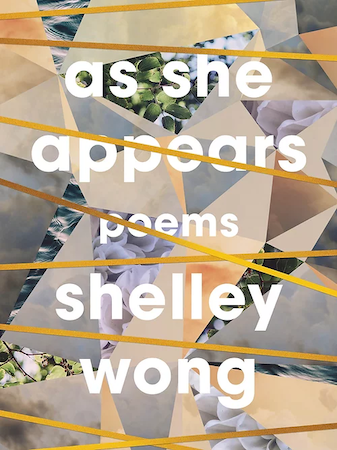Spring is the sweetest time to discover new poetry. Lingering daylight and blossoms, the chance to open a book on a park bench and be transported, briefly, to a heightened world. Each spring, I find myself gravitating towards collections, both intimate and bold, that wrestle with identity and history, desire and self-definition. Poetry opens up space for us to explore a feminist vision free from the lens of judgment or rational discourse, making imaginative leaps that awaken possibility.
Here are seven new poetry collections that consider intersectional issues of gender and oppression. These poems got into my head, under my skin. Read them and let your world expand.
Refusenik by Lynn Melnick
A fierce, feminist page-turner of a book, Melnick’s third collection is a riveting follow-up to Landscape With Sex & Violence. “You can only hear you look like a hooker so many times/ before you become one,” she writes, recounting the story of babysitting for the rabbi’s son as a teen, a chilling parable about survival under patriarchy. With her signature wit and candor, Melnick reckons with a history of misogyny and anti-Semitism, war and atrocity, sexual and domestic violence, myriad abuses of power—and yet there is humor and hopefulness in her voice, a perpetual sense of discovery. These poems reclaim the power of mother-love and female pleasure, searing rage and desire, as they navigate layers of generational and personal trauma and rework them into art. Refusenik rewrites what it means to live in America today. On July 4th, Melnick insists: “I recognize my own fireworks.”
As She Appears by Shelley Wong
Shelley Wong is the poet-queen the world needs right now. Her visionary debut, As She Appears, centers queer women of color in shape-shifting poems of becoming and knowing, seeing and being seen. Wong uses white space and silence to pose questions about identity and interiority, femininity and power: “women are familiar with surrender/ & the appearance of it,” she writes, letting the lines float free on the page. Subversive and sensual, Wong’s poems take us from the solitary salt marshes of Fire Island to Pride month in New York, dancing “in strobing summer heat.” She mourns a lost relationship, writes odes to Frida Kahlo, contemplates being a “not-mother,” appraises the rites of courtship and fashion, wanders Golden Gate Park in the pandemic spring. These gorgeous poems are alight with flowers, birds and longing, making a new world in their wake. As She Appears is a stunning feat of self-creation: “As a girl, I never/ saw a woman/ who looked like me./ I had to invent her.”
Mother Body by Diamond Forde
Forde’s audacious debut won the Saturnalia Books Poetry Prize and offers surprise and delight at every turn. In visceral poems that get up close to the Black female body, its blood and breath and hungers, Mother Body follows the journey of the fat girl as she nicks herself shaving, endures a pelvic exam, savors post-coital bliss, dances, eats, orgasms, exercises. A poetic descendant of Lucille Clifton, Forde writes with femme swagger and fine craft, her language rhythmic and lush. In “Ode to My Stomach,” she revels in naming: “You are/ honey dome. Power house. Piston/ of digestion pump-pumping.” At the beach, fat girl studies “a jellyfish’s rainbowed remains:/ luminescent dew, a gelatinous porkbelly of blues…” These unapologetic poems are full of wonder, refuting a legacy of shame and unworthiness. Mother Body dances with pain but claims joy as a birthright, a coming home to self-love and wholeness.
The Man Grave by Christopher Salerno
I confess I expected to dislike a poetry collection about the male experience, written by a straight, white cis-man. Instead, I was captivated and deeply moved by Salerno’s agile poems, which wrestle with masculinity in its complex forms. With tenderness and precision, The Man Grave interrogates the privileges and vulnerabilities of boyhood and manhood, from schoolyard memories of the epithet “fag” to sperm viewed under the microscope at the IVF clinic. Salerno’s speakers try to “leave manliness behind” but can’t stop seeing brutality everywhere, recalling the violence of male relatives, watching an osprey hunt its prey. Shame and anger simmer in a series of “Sports No One Follows” poems: “To learn how to shut another man’s mouth/ you must point at him with the fat end of the bat…” Taut with wordplay and irony, The Man Grave finds sorrow inside laughter, redemption in the act of empathy. A gentle poem about shaving a mustache nearly broke my heart.
Useful Junk by Erika Meitner
Erika Meitner’s sixth collection blazes with eroticism and curiosity. These passionate poems teem with incisive observations of daily life, from night-swimming at a Holiday Inn to buying a pregnancy test at CVS. “I’ve got years in my mouth too, waiting to be fished out,/ laid across a table, and gutted,” she writes. Useful Junk explores memory and the body with relentless lyricism and nostalgia, writing in praise of female pleasure and discovery at midlife. Meitner’s poems want to inhabit everything, and do: perimenopause, infertility, friendship, motherhood, family trauma, sexting, trying to take a selfie of one’s own ass. There is an infectious, headlong energy to the lines, a vision “multitudinous and wild” akin to that of Walt Whitman. I felt these speakers were looking into my own heart, revealing the wonder and vulnerability of its yearning: “Can I ask you again to tell me about my body,” Meitner urges, “to introduce me to my own numinous skin?”
All the Flowers Kneeling by Paul Tran
Paul Tran’s astonishing debut is balm for survivors everywhere. Their collection investigates sexual violence and generational trauma while forging a bright path of resilience and healing. Tran is a queer and trans descendant of Vietnamese refugees whose innovative poetic forms reflect the shifting, nonlinear experiences of trauma survivors. Resisting the urge for closure, their poems cycle through memory and recurring imagery; the song of a passing ice cream truck, heard during an assault, replays in the lines. But Tran finds strength in breaking apart language and exposing its trickery, naming slippery homonyms, dancing around the unspeakable act of violation: “Reap. Pear. Pare. Aper. / These are versions of the word/ I won’t say.” The poems recast a legacy of war and abuse, critique the imperial gaze of Renaissance art and the scientific method, retell the tale of Scheherazade until it becomes a story of survival and love. All the Flowers Kneeling affirms poetry’s transformative force: “A poem is a mirror/ I use to look/ not at but into myself.”
Glass Bikini by Kristin Bock
The much-anticipated second collection from surrealist poet Kristin Bock explores dystopian dreamscapes, myths, and spells. Glass Bikini channels Barbarella in her silver spacesuit and Mary Shelley in her prophetic brilliance, illuminating our nightmare world. These poems travel from ashen Pluto to the day-glo Dollar Store, populated with robots and rabbits, mannequins and monsters, mirrors revealing what makes us human. Bock mixes deft prose poems with her signature lyricism to heighten emotion. Buttons shine “like opals buried deep inside the moon;” “grief is a boat/ exactly the size and shape of the sea.” And hope exists in the redemptive power of the feminine. The final sequence, “Copilot,” recounts the last days of a doomed planet, a reverie of violence and survival where tenderness between women becomes a promise we can hold: “I want to tell her shhh, I’m here where you left me, in the blue basin, waiting to catch your analogue heart like an egg from the sky.”

